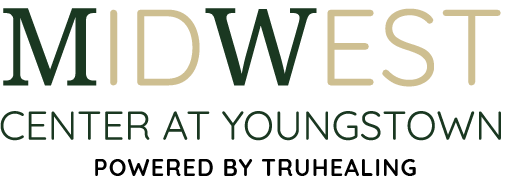Triggers are external or internal stimuli that can cause a person to have cravings or urges to use drugs or alcohol. These triggers can be anything from specific people, places, emotions, or even certain thoughts. For those in addiction recovery, it is crucial to understand and manage triggers in order to maintain sobriety.
In the journey towards sobriety, triggers play a significant role in relapse prevention. They can be powerful and sneaky, often catching individuals off guard and leading them back into destructive patterns of substance abuse. This is why learning how to recognize and cope with triggers is essential for long-term success in recovery.
External Triggers:
External triggers refer to events or circumstances outside of an individual’s control that can lead them towards using substances again. These include people, places, situations, objects, smells, or sounds associated with past drug use. For example, seeing a bottle of wine may trigger someone who struggles with alcohol addiction.
One way to manage external triggers is by avoiding them altogether whenever possible. This may mean cutting ties with old friends who are still using drugs or avoiding certain social situations where alcohol will be present. It may also involve making changes in one’s daily routine by taking alternative routes home from work or avoiding certain stores that sell drugs.
Internal Triggers:
Internal triggers are emotional states that prompt individuals towards substance use as a coping mechanism. These could include stress, anxiety, depression, anger, loneliness, boredom, low self-esteem and feeling overwhelmed. In early recovery especially when emotions tend to run high internal triggers can pose severe risks for individuals trying to maintain their sobriety.
Learning healthy coping mechanisms such as mindfulness techniques like deep breathing exercises or practicing relaxation techniques like yoga can help manage these internal triggers effectively. It is also vital for individuals in recovery to seek out support from therapists or support groups where they can learn healthy ways of dealing with their emotions without turning to substances.
Triggers can be a challenging and unavoidable aspect of addiction recovery. However, by understanding what they are and how they can affect one’s sobriety, individuals can learn to manage and cope with them effectively. With the right support system, coping skills and determination, anyone can overcome their triggers and lead a healthy, sober life.
What are Triggers?
Triggers are events, people, emotions, or situations that can cause someone to experience strong cravings for alcohol or drugs. These triggers often lead to relapse and can be a major obstacle in the journey towards sobriety. Understanding and managing triggers is crucial for maintaining long-term sobriety, which is why it is an important focus at Midwest Center at Youngstown.
One of the first steps in understanding triggers is identifying them. Triggers can be different for each person and may change over time. Some common triggers include stress, boredom, social pressure, certain people or places associated with substance use, and even positive emotions such as happiness or excitement. It’s important to take note of what situations or feelings seem to increase the desire to use substances.
Once you have identified your triggers, it’s essential to have a plan in place for managing them. The first step is learning healthy coping mechanisms that you can turn to when faced with a trigger. These may include mindfulness techniques such as deep breathing or meditation, engaging in physical activity like exercise or yoga, talking to a supportive friend or family member, or finding a healthy outlet for your emotions like writing or creating art.
Another helpful strategy is avoiding known triggers whenever possible. This could mean staying away from certain people who encourage substance use or avoiding social events where alcohol will be present. While this may not always be possible, having awareness of potential triggers and making an effort to avoid them can greatly reduce the risk of relapse.
It’s also crucial to have a support system in place during times of heightened trigger sensitivity. Whether it’s through attending support group meetings or reaching out to your community or individual therapy sessions with our experienced counselors at Midwest Center at Youngstown, having someone who understands your struggle and can offer guidance and support can make all the difference.
Self-care plays an essential role in managing triggers on your journey towards sobriety. Taking care of your physical, emotional, and mental well-being can help reduce the impact of triggers. This includes getting enough sleep, eating a healthy diet, and practicing self-compassion.
Understanding and managing triggers is an essential aspect of maintaining sobriety. By identifying triggers, developing coping strategies, avoiding known triggers when possible, having a support system in place, and prioritizing self-care – you can successfully navigate through trigger situations and continue on your path to recovery at Midwest Center at Youngstown.
Understanding Your Personal Triggers
Triggers are one of the most challenging aspects to navigate in the journey towards sobriety. They are external or internal cues that can provoke a strong urge to use drugs or alcohol, making it difficult to maintain abstinence. Understanding your personal triggers is crucial in managing and overcoming them in your path towards lasting sobriety.
In order to identify your personal triggers effectively, it is essential to keep track of your thoughts and behaviors when you experience cravings for substances. This self-awareness will help you understand what specifically sets off these urges for you. It may also be helpful to seek support from a therapist or counselor who can assist in identifying patterns and triggers that may not be obvious at first glance.
Once identified, it’s important to develop strategies for managing these triggers when they arise. This could include avoiding certain people or places that trigger cravings, finding healthy ways to cope with emotions like stress or boredom instead of turning toward substances, and creating an action plan for how to handle unexpected triggers.
It’s also essential to remember that recovery is not a linear process; there may be setbacks along the way. If you do happen to encounter a trigger and slip into old habits momentarily, it’s important not to beat yourself up about it but rather refocus on your goals and continue moving forward.
Understanding your personal triggers is a crucial step towards maintaining sobriety. It requires self-awareness, seeking support from professionals, and developing effective strategies to cope with triggers when they arise. With the help of Midwest Center at Youngstown, individuals can gain the necessary tools and support to overcome their triggers and achieve lasting recovery.
Coping Strategies for Dealing with Triggers
Dealing with triggers is an essential part of the journey to sobriety. Triggers are events, people, places, or experiences that bring back memories and emotions associated with substance use. These can be difficult to avoid but learning how to cope with them effectively is crucial for maintaining sobriety in the long term.
Here are some coping strategies for dealing with triggers:
1. Identify Your Triggers: The first step in managing triggers is identifying them. Take some time to reflect on your past experiences and determine what situations or environments led you to use substances. This could include certain people, stressors, or even specific times of day. Knowing your triggers will help you anticipate and prepare for potential challenges.
2. Develop a Plan: Once you have identified your triggers, it’s important to develop a plan for how you will respond when faced with them. This plan should involve healthy coping mechanisms such as calling a friend, practicing deep breathing exercises, or engaging in a favorite hobby instead of turning to substances.
3. Practice Mindfulness: Mindfulness is the practice of being present in the moment and accepting one’s thoughts and feelings without judgment. It can be helpful in managing triggers by helping individuals recognize their thoughts and emotions without reacting impulsively.
4. Seek Support: Having a strong support system is crucial when dealing with triggers. Reach out to friends or family members who understand your journey towards sobriety and can provide encouragement and accountability during challenging times.
The Role of Therapy in Managing Triggers
The journey to sobriety is often filled with challenges, and one of the biggest obstacles that individuals face are triggers. Triggers are external or internal stimuli that can elicit strong emotions or cravings for substance use. They can be anything from certain people, places, or situations to specific thoughts or feelings. Triggers can also vary from person to person and may change over time.
Managing triggers is an essential aspect of recovery, as they can potentially lead to relapse if not addressed properly. This is where therapy plays a crucial role in facilitating long-term sobriety. Therapy provides a safe and supportive environment for individuals to explore their triggers, understand their underlying causes, and learn effective coping strategies.
One type of therapy that has shown success in managing triggers is Cognitive Behavioral Therapy (CBT). CBT aims to identify negative thought patterns and behaviors that contribute to substance use and replace them with more positive ones. In the context of triggers, CBT helps individuals recognize and challenge their automatic responses to triggering stimuli. Through this process, they can develop healthier coping mechanisms that do not involve substance use.
Another helpful therapy modality for managing triggers is Dialectical Behavior Therapy (DBT). DBT focuses on teaching individuals how to regulate their emotions effectively through mindfulness techniques and distress tolerance skills. By learning how to cope with intense emotions without resorting to substance use, individuals can better manage trigger situations.
In addition to these evidence-based therapies, individual counseling sessions provide a safe space for individuals in recovery to discuss any concerns or struggles related specifically to their personal triggers. With the guidance of a therapist trained in addiction treatment, clients can gain insight into the root causes of their triggers and develop personalized strategies for managing them.
Group therapy also plays an important role in managing triggers by providing support from others who have faced similar challenges in recovery. Through group discussions and activities led by a therapist or counselor, individuals can learn from each other’s experiences, share coping strategies, and receive validation for their struggles.
It is essential to keep in mind that the journey to sobriety is not a linear process. There may be setbacks and triggers along the way, but with therapy and a strong support system, individuals can develop the skills needed to effectively manage them. At Midwest Center at Youngstown, our team of experienced therapists is dedicated to helping individuals in recovery understand and overcome their triggers for long-term success in sobriety,
Understanding and managing triggers is crucial in one’s journey towards sobriety. It is a continuous process that requires self-awareness, support, and effective strategies. By working closely with the professionals at Midwest Center at Youngstown, individuals can develop a personalized plan for identifying and coping with their triggers.

